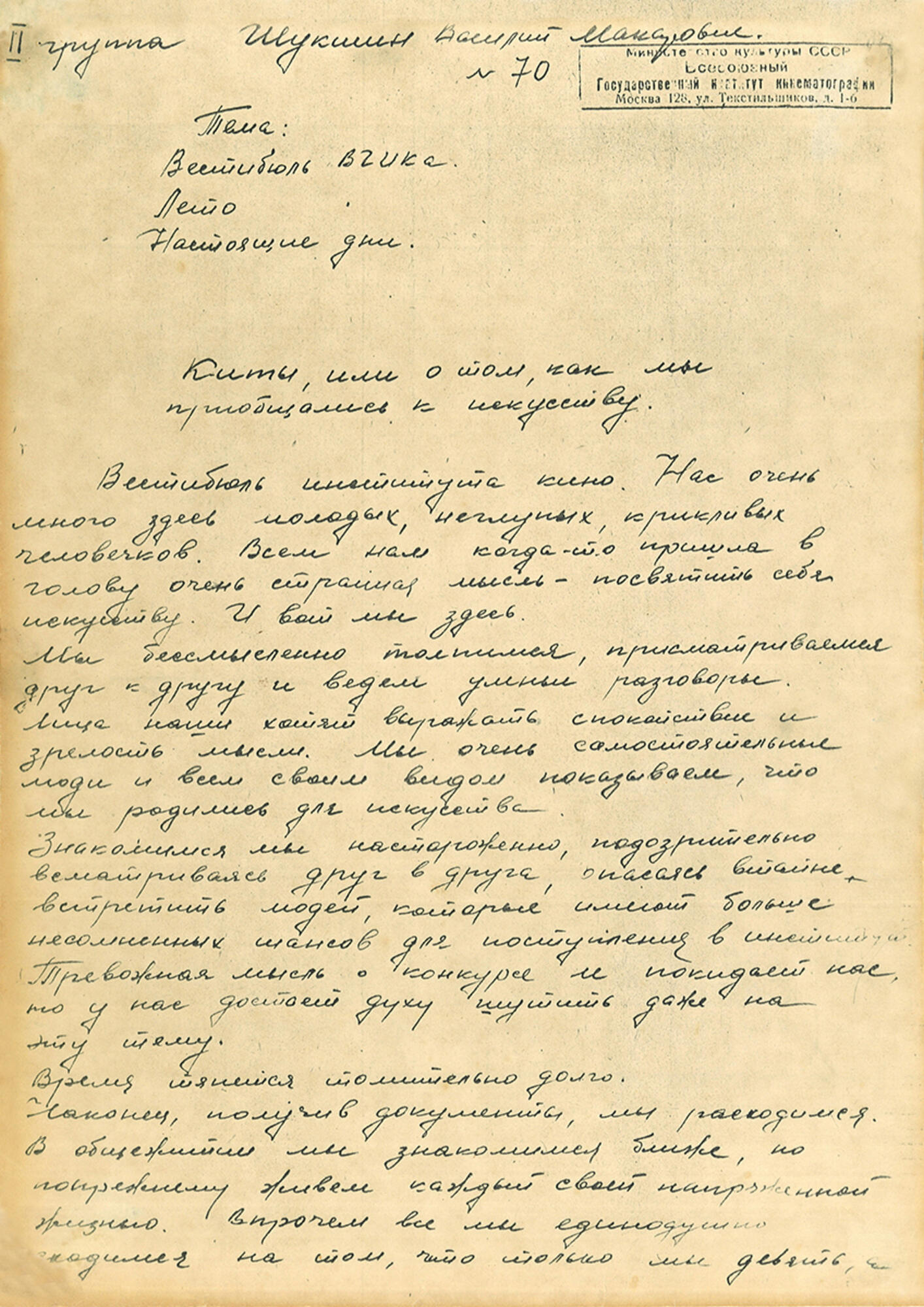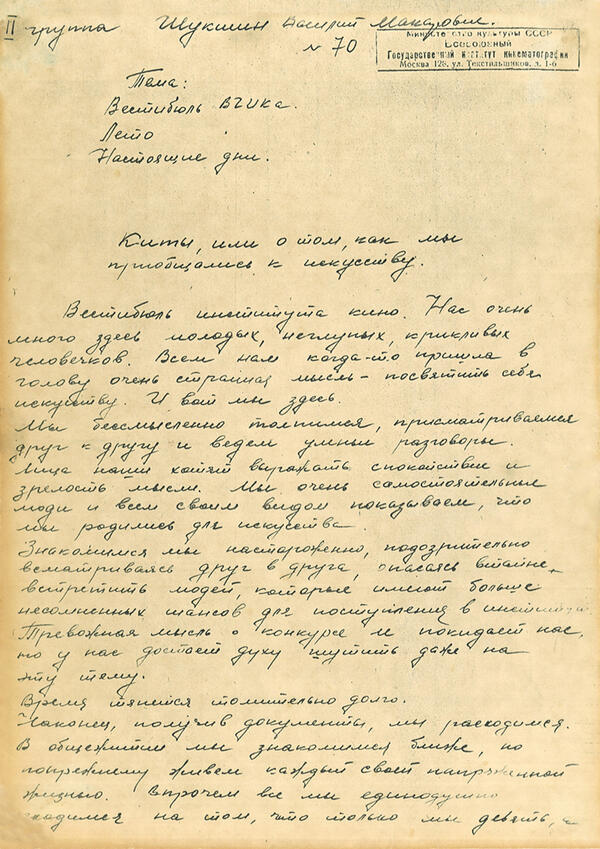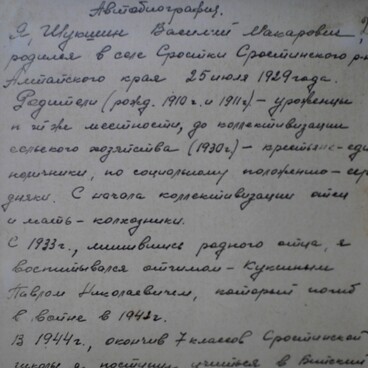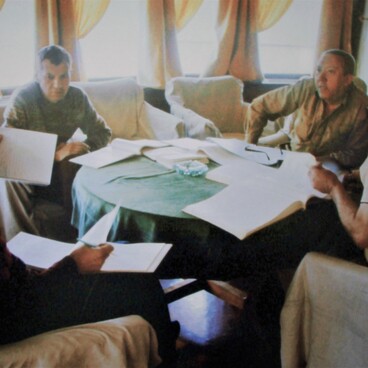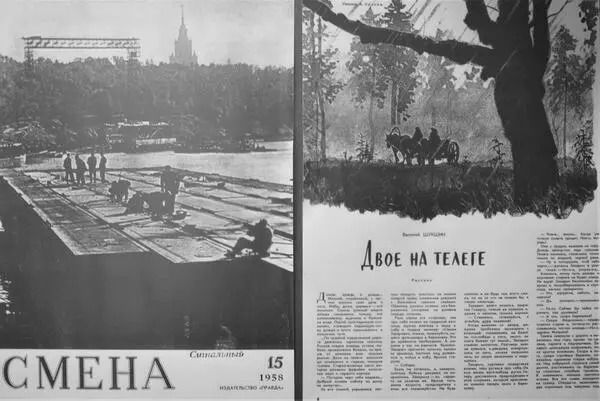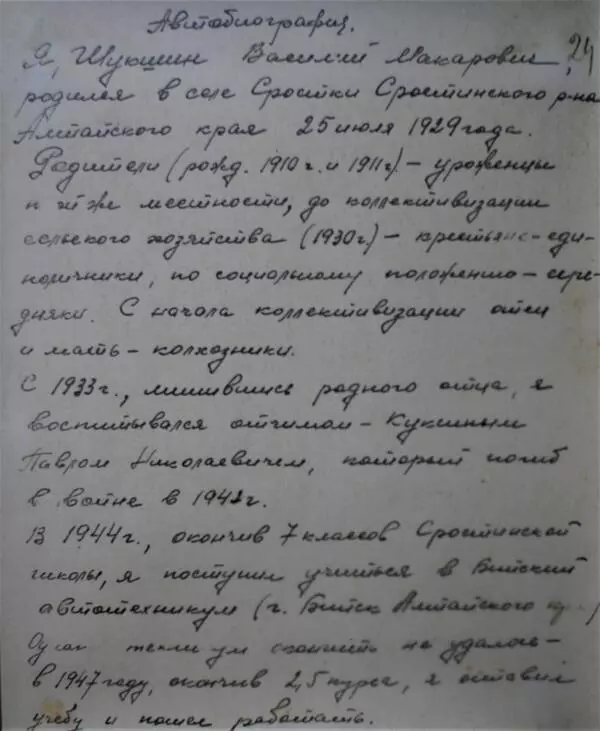In one of his articles, Vasily Shukshin recalled how he entered the university. “It was 1954, we were having entrance exams for VGIK (the Russian State Institute of Cinematography). My preparation left much to be desired, I could not boast any special erudition, and everything about me caused bewilderment of the admissions committee. As far as I understand now, what saved me was the essay that I was asked to write even before meeting my mentor. The theme of the essay was something like this: “Please describe what is going on in the corridors of VGIK these days.” It was a very hot topic. I went all out on this piece. I described everything in detail — what we argued about, what we joked about, what we were angry about, what we hoped for.’ The future director called his essay Whales, or How We Got Involved in Art.
The piece turned out to be quite long. In Shukshin’s essay, “Whales” were his neighbours in the student dormitory, who thought they already were successful directors and could talk about art all day long. As the author wrote, “They always have something that immediately makes them stand out from the crowd. Here”s one of them: thin, medium height, with faded sucked sweets instead of eyes. What sets him apart is that he can talk about anything — and in a beautiful, simple language.”
The essay showed that Shukshin himself perfectly mastered the art of expressing his thoughts, conveying to the reader the essence of what was happening and accurately describing a person’s nature in just a few phrases. He also did it naturally and with humour, fully revealing his feelings and thoughts. At the end of the essay, one of the ‘Whales’ failed the entrance exam. The author shared his observations of his character, who seemed to start realizing what he had done, but it was already too late. The character’s face changed, and for a moment Shukshin began to feel sorry for the “Whale”. But memories of his conduct put an immediate end to the writer’s sympathy. ‘Such people should be taught by life, ” the author concludes.
The essay was rated by Boris Ivanov, a film director, who later became a vice-rector at VGIK. He noted that the text was not related to the topic and did not meet the requirements, but the author showed a film director”s talent, so the work deserved the highest score.
The piece turned out to be quite long. In Shukshin’s essay, “Whales” were his neighbours in the student dormitory, who thought they already were successful directors and could talk about art all day long. As the author wrote, “They always have something that immediately makes them stand out from the crowd. Here”s one of them: thin, medium height, with faded sucked sweets instead of eyes. What sets him apart is that he can talk about anything — and in a beautiful, simple language.”
The essay showed that Shukshin himself perfectly mastered the art of expressing his thoughts, conveying to the reader the essence of what was happening and accurately describing a person’s nature in just a few phrases. He also did it naturally and with humour, fully revealing his feelings and thoughts. At the end of the essay, one of the ‘Whales’ failed the entrance exam. The author shared his observations of his character, who seemed to start realizing what he had done, but it was already too late. The character’s face changed, and for a moment Shukshin began to feel sorry for the “Whale”. But memories of his conduct put an immediate end to the writer’s sympathy. ‘Such people should be taught by life, ” the author concludes.
The essay was rated by Boris Ivanov, a film director, who later became a vice-rector at VGIK. He noted that the text was not related to the topic and did not meet the requirements, but the author showed a film director”s talent, so the work deserved the highest score.
